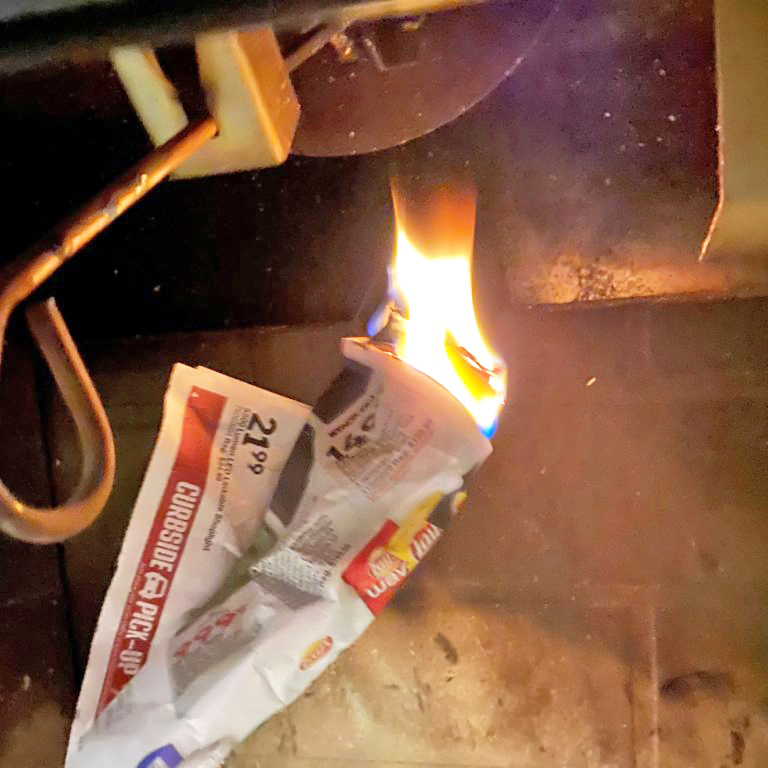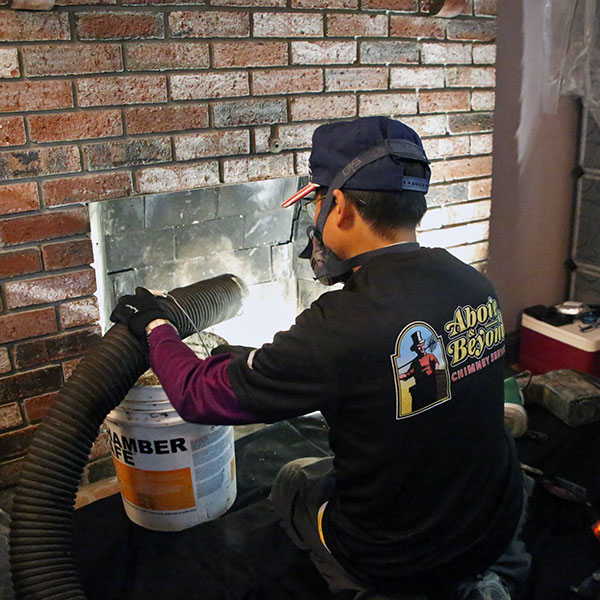5 Winter Fireplace & Chimney Care Tips
A roaring fire is soothing in the dead of winter. But to completely enjoy your fires, you want to make sure your fireplace and chimney system is in good shape and working safely. Here are five tips for important winter fireplace and chimney care.
 1. Ensure smooth drafting
1. Ensure smooth drafting
Several things can impede the drafting of smoke and send it and deadly carbon monoxide into your home. A house that’s too air-tight won’t provide sufficient air for the draft, so crack a window. A super-cold flue contains heavier air than the air traveling up into it. Stick a lighted rolled-up newspaper into the flue for a minute or two to warm the air before starting your fire.
2. Make sure the chimney is clean
Drafting problems also can be caused by obstructions in your flue. The nests of small animals and animals that have died in the chimney are common issues if you don’t have a secure chimney cap. Tree debris such as leaves and twigs also can build up and create an obstruction.
Regular chimney sweeping is important not only to clean out obstructions but also to remove flammable creosote, which is the cause of most chimney fires (see below). Hire only CSIA-certified chimney sweeps for this job.
3. Watch for chimney fires
Not all chimney fires are full-on, blazing events. Many fires are small and go out on their own before anyone notices them. Fires of any size can damage your chimney liner, chimney masonry and other adjacent materials of your home.
The best way to prevent chimney fires is to have creosote removed once a year by a technician who’s certified through the Chimney Safety Institute of America (CSIA). These professionals have the equipment and training to do the job safely and correctly.
Signs of an active chimney fire include:
- A weird tapping or clicking noise
- A rumbling sound like from a distant train
- Excess dense smoke coming from either end of your chimney
If you notice any of these signs, call 911 and then extinguish the fire (in the firebox) if you can do it safely. When the problem is over, schedule a chimney inspection before using your fireplace again.
4. Be aware of masonry damage
Our cold Massachusetts winters can be hard on chimney masonry. Small cracks in the bricks or mortar will allow water to get in and then freeze and expand, leading to more serious damage and possible chimney leaks. Cracks in the concrete chimney crown will cause deterioration and eventually open a path for rain and snow into the inside of your chimney.
It’s ideal to have your chimney professionally inspected each year before the burning season, but if you suspect there are problems with your masonry, call out a technician any time of year for an inspection
and repair work.
 5. Clean the firebox
5. Clean the firebox
Ash and creosote can be corrosive to metals and masonry within your firebox. Scoop and vacuum out ashes (you can leave about an inch on the firebox floor for insulation) and scrape and clean off soot and creosote from the surfaces.
A good household cleaner, a heavy-duty sponge, towels, a stiff brush, an ash shovel and a vacuum should do the job well. If you have glass fireplace doors, clean them regularly to prevent a permanent marring of the glass.
Use these and other commonsense tips to ensure a wonderful winter with a fireplace and chimney that work safely and efficiently.
Above & Beyond Chimney Service of Dedham, MA, is ready to help keep your fireplace and chimney in excellent shape. We provide certified chimney sweeping, chimney inspection and all types of chimney and fireplace repairs. Call (781) 383-0415 and get the job done right.
